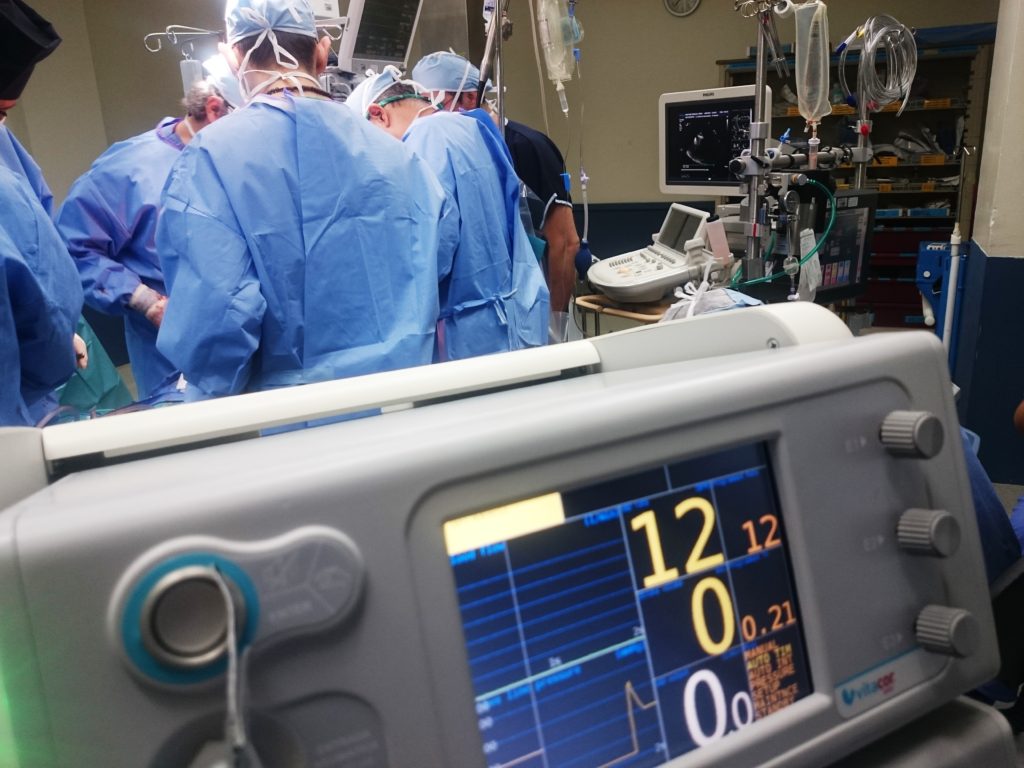In more than 95% of patients, a knee replacement will last up to 15–20 years without issue. Unfortunately, there are times when patients have significant complications following a procedure for total knee replacement soon after surgery.
This can lead to the need for additional surgeries. It can also result in long term and ongoing pain as well as an inability to bend one’s knee fully. Early failure in these instances can be an unfortunate risk of the surgery, caused by physician malpractice, or have something to do with the knee replacement itself.
Whether there was any physician malpractice involved will require extensive review of your records and consultation with medical doctors experienced in performing knee replacement surgeries. The Thistle Law Firm can help you navigate this technically and emotionally difficult process.
Table of Contents
What Are Some Typical Signs That A Knee Replacement Is Failing?
Whether or not a knee replacement is failing can be determined by imaging studies such as X-rays. Delayed treatment for a failed knee replacement can cause you significant pain and other future complications.
Even if there was no negligence involved in your knee replacement failing, your surgeon could still be at fault for dismissing complaints of clear signs of a failed knee replacement as typical post-surgical pain in follow-up visits. Be mindful of the following symptoms:
- Soreness and severe pain
- Signs of an infection such as redness, swelling, fever, chills
- Knee stiffness
- Difficulty bending the knee
- Difficulty walking with the knee replacement
- A feeling that your knee is unstable
What if I Am Allergic To The Material In My Knee Replacement?

Your surgeon could also commit malpractice by using a knee replacement with components to which you are allergic. Roughly 10–15% of the population is hypersensitive to metal. If your surgeon is aware you are allergic to a certain metal such as nickel, and that surgeon uses a knee component that has nickel in it during surgery, they can be held liable for any harm this causes you as a result.
Whether your surgeon was aware of your allergies can be proven by a review of your medical records, typically by the medical history that you gave him or her.
What If My Knee Replacement Was Installed On The Wrong Knee?
In some instances, the wrong-sided implant may be used for your knee replacement (e.g. a left knee replacement being used on your right knee). This can happen because:
- The hospital where the surgery was performed does not have protocols for confirming procedure sidedness before the surgery begins
- Similar procedures at this hospital are used for confirming hip components to confirm knee components — hip components are more often bilateral, and thus wrong-sidedness is less of a concern
- Operating room personnel did not follow a standardized process to confirm knee implant sidedness
- The operating room staff focused on sizing of the knee replacement and not side
Can A Wrong-Sized Knee Replacement Cause Medical Issues?
In other instances, a surgeon may use the wrong sized implant on your knee, which can result in significant pain and/or feelings of instability in the knee. Whether or not a wrong sized implant was used can be determined by X-rays.
At a minimum, this will require a revision surgery to fix, but there can also be other long-lasting problems, especially if there is a significant delay in addressing this issue. While it may sound obvious that there was negligence when a wrong sized implant is used, it will ultimately take an orthopedic surgical expert to determine this.
Steps to Take When You Suspect Malpractice is at Fault
Having your trust betrayed by a professional can be an emotionally trying situation. But threatening a lawsuit may make the situation worse.
Instead, we suggest you take the following steps:
- Order all medical records pertaining to the malpractice. You have a right to your medical records — but this step may still be fraught. Some find it easier to say they need the records for an appointment with a different doctor. If the doctor’s office attempts to charge more than a nominal fee, consulting a Philadelphia medical malpractice lawyer can help with this step.
- Get a second opinion. Sometimes the malpractice is blatantly obvious — such as in cases where the knee replacement is done on the wrong knee. In other cases, it will help for a different doctor to give a second opinion.
There are two important things to keep in mind here:
- Second opinions help determine whether medical malpractice actually occurred. Not every bad outcome is medical malpractice. There are times when a bad result is just a bad result. Not every situation in which something goes wrong — or in which your health condition worsens — rises to the level of a viable medical malpractice case.
- Don’t tell the second doctor that you believe your first doctor committed malpractice. Many doctors do not like to treat a patient who may sue their prior doctor. It’s better to just describe the problem, the prior treatment, and ask for a second opinion. If, after the second doctor tells you what they think, you are still unsure if there was a mistake, you can ask the second doctor if they would have done anything differently.
- See a medical malpractice lawyer immediately. Even if the second opinion doesn’t arrive at a conclusion of malpractice, that doesn’t necessarily mean that medical malpractice did not occur.
If you have not already done so, consult with an experienced lawyer who handles medical malpractice cases. They will be able to help you assess your case and take the right next steps.

When to Consult with a Skilled Malpractice Attorney
Just because your knee replacement fails soon after surgery does not always indicate that there was malpractice on the part of your surgeon. It may be the result of an unfortunate risk that happened without any medical negligence involved, or due to a defect with the knee replacement. Therefore you will need an experienced medical malpractice attorney to go through your records and investigate your case to determine if there was negligence involved.
There are statutes of limitations for medical malpractice cases which vary by state. In Pennsylvania and New Jersey, the limit is two years. To ensure you file a claim before the statute of limitations expires, you should reach out to a Philadelphia hospital and doctor malpractice attorney as soon as you realize a doctor error occurred.
The attorneys at the Thistle Law Firm are here to take your call and answer your questions at 215-525-6824.

Dan Thistle grew up in Montgomery County, Pennsylvania and is a graduate of St. Joseph’s Preparatory School and the University of Pennsylvania. After graduating from Penn, Dan followed in his father’s footsteps and attended the Villanova University School of Law. In October, 2006, he was privileged to join him as a member of The Thistle Law Firm.

